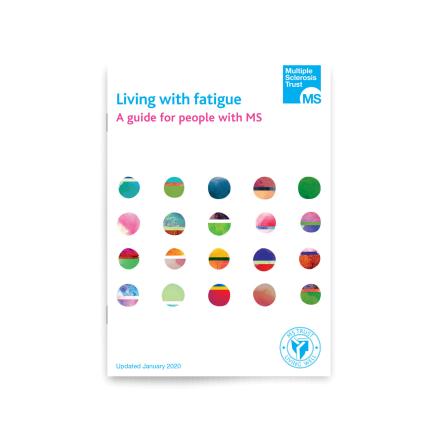We know that fatigue brings you down more than most MS symptoms.
Our research shows it's second only to mobility problems for its negative effect on your mental health.
It's also a very common MS symptom, and its consequences run deep. Too often it scuppers social plans, home and work life, leaving you feeling isolated and frustrated at missing out on things you’d happily do if you had the energy.
This can have a big impact on how you see yourself as a partner, parent or worker and many understandably find this hugely challenging. It’s why we're using MS Awareness Week to shine the spotlight on your struggles.
So let's start here.
If those around you understand your fatigue better, they can take steps to help you join in when you're up to it. It will help manage expectations and take some of the pressure off you. And it gives them an insight into what MS can throw at you, suddenly and without warning. Because let's face it, MS can take it out on your nearest and dearest too.
The important thing is to keep those communication channels open, so you can still enjoy quality time with loved ones and friends’ invitations keep coming. If you have to duck out of things at the last minute, focus on the plans that can be rearranged so you have something to look forward to.
Try to boost your energy levels using our tips then use these ideas to have fun without overdoing it. This way you may break the link between fatigue and low mood that can feel like it goes round and round in a vicious cycle.
It can be tricky when the word itself seems to downplay the reality. This is no normal tiredness.
MS fatigue knocks you out physically and mentally in a way that’s hard to relate to if you don’t have MS – even with the best will in the world.
Why not ask those close to you to watch our short animation explaining what fatigue feels like? Its real-life examples are a bit of an eye opener if you don’t have MS, and it got some positive feedback from our social media followers for its accurate take.




